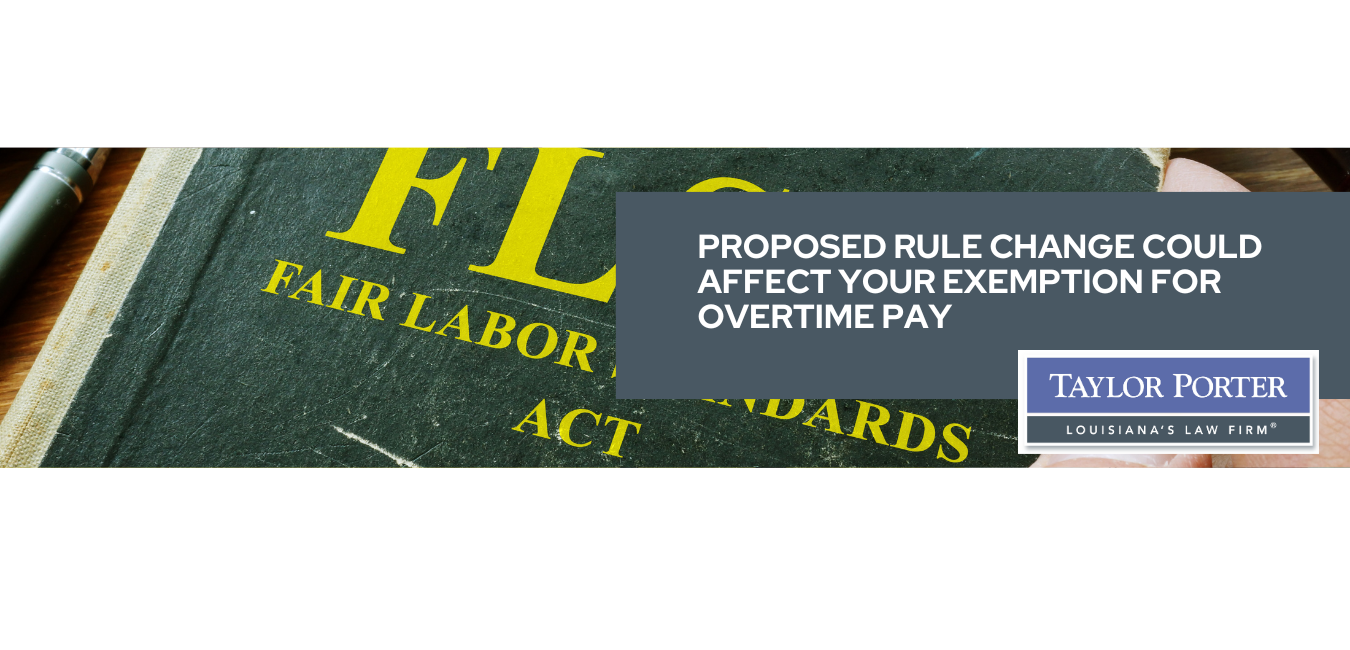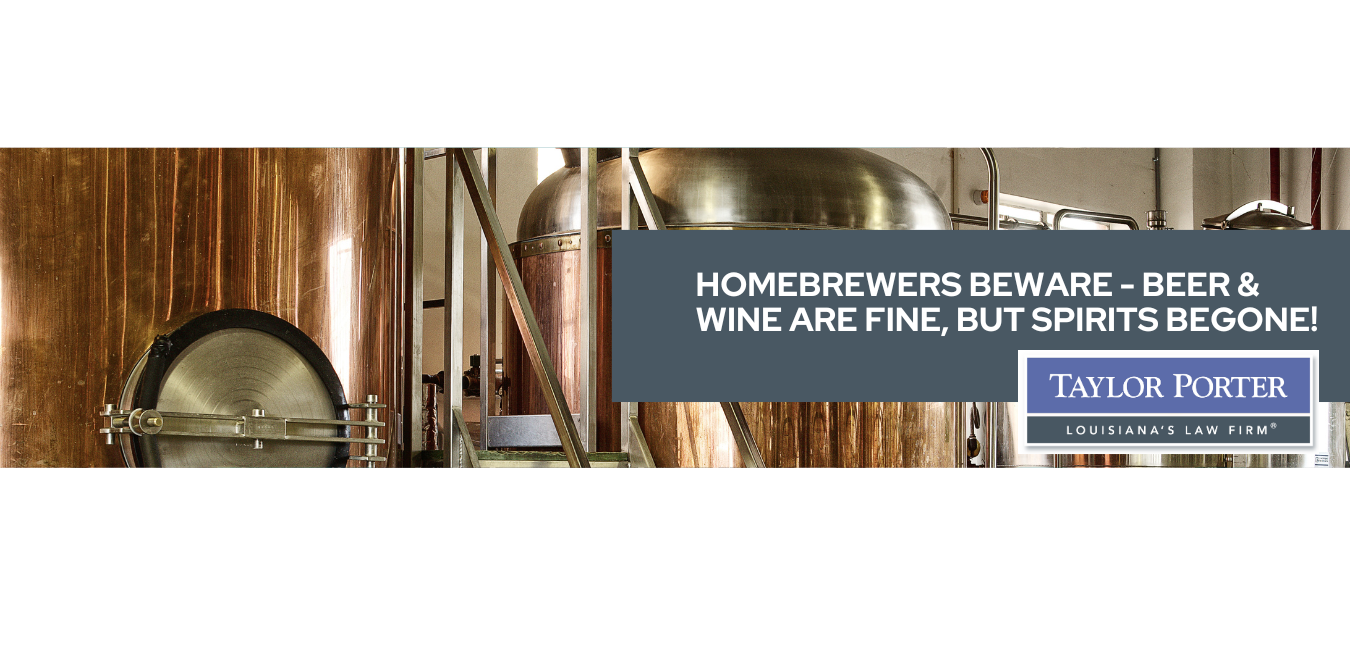COVID-19’s Impact on Construction: Best Practices for Contractors/Subcontractors to Preserve Rights
By: Kari “Kiki” A. Bergeron – Partner, Taylor Porter Construction Practice;
kari.bergeron@taylorporter.com
 Most governmental agencies have issued stop work orders to “non-essential” businesses due to the widespread COVID-19 pandemic. The construction industry, however, has generally not been subjected to these shutdown orders. Nevertheless, construction projects are being impacted – and will continue to be impacted – during the age of COVID-19. The legal implications of these impacts will vary from one contract to another; therefore, all parties to construction contracts are urged to carefully review their contracts to ensure compliance with all notice and claim provisions.
Most governmental agencies have issued stop work orders to “non-essential” businesses due to the widespread COVID-19 pandemic. The construction industry, however, has generally not been subjected to these shutdown orders. Nevertheless, construction projects are being impacted – and will continue to be impacted – during the age of COVID-19. The legal implications of these impacts will vary from one contract to another; therefore, all parties to construction contracts are urged to carefully review their contracts to ensure compliance with all notice and claim provisions.
The mass quarantines, “social distancing”, “stay at home” orders, and travel restrictions enacted to help slow the spread of COVID-19 have impacted production globally. We can expect to experience higher costs and price fluctuations, material shortages, extended delays in product fulfillment and shipping, etc., which will undoubtedly cause a ripple effect of delays and disruptions to construction projects. Look no further than the recent shortages of hand sanitizer and toilet paper to understand supply chain interruptions. In addition to the production issues, there are negative impacts on productivity and delays on construction projects associated with reduced crew sizes, new job site restrictions, delayed inspections/tests, delayed permitting, labor disruptions, etc. All of these issues will lead to slower project completion times. To prepare for claims arising from COVID-19, contractors/subcontractors are urged to provide prompt notice of these impacts, to timely submit claims per the terms of the contract, and to carefully document all of the delays, cost increases, and mitigation efforts.
A. Written Notice of Impacts
In order for contractors and subcontractors to preserve their rights and mitigate impacts on the project, they should provide prompt written notice to the relevant entities regarding their specific delays/disruptions and potential delays/disruptions caused by the COVID-19 pandemic. The parties to the contract should carefully review the notice requirements set forth in the contract to ensure compliance with provisions regarding the entity/person to whom notice should be sent, the proper delivery method of the notice, and the time frame for providing the notice.
In addition, the notice should contain the following information:
- Explain how COVID-19, along with the various national and local governmental shut down orders, has negatively impacted the construction project. Be specific about the impacts, such as delays in obtaining materials, increases in material/labor costs, labor issues, etc., as well as the time and costs associated with those delays and disruptions.
- Explain that the COVID-19 pandemic qualifies as an unforeseeable and/or unanticipated event that was beyond the contractor’s or subcontractor’s control, which entitles it to relief under the contract.
- Identify all efforts made to date to mitigate the COVID-19 related delays, disruptions, increased costs, and any other impacts.
- Include a reservation of all rights the contractor/subcontractor may have under the contract and applicable law in order to protect its interests, including the right to seek extensions of the contract time and increases in the contract/subcontract price.
Due to the fluidity of the COVID-19 pandemic, these written notice letters should be updated continually as new information is learned about the cost increases and delays, although the actual impact may not be fully known until much later. What’s important is that the notice letter is sent as soon as possible. Do not wait until the end of the project to send this notice letter.
B. Claim Notice
In addition to the notice letter(s), construction parties to a contract need to comply with any contractual provisions requiring timely written notification of claims associated with delays, costs increases, or other claims, which is different from an initial notice letter. For example, a claim for additional contract time and/or additional costs associated with delays may be waived if the contractor and/or subcontractor did not timely and properly provide written notice of said claim to the contractor and/or owner and/or architect of record. Careful review of the contract should be conducted to ensure compliance with the claim procedures to prevent the waiver of these claims.
C. Document Delays, Costs Increases, and Mitigation Efforts
To best prepare for claims arising from COVID-19 related impacts, contractors and subcontractors are urged to keep detailed records of those impacts – through photographs, daily job logs, meeting minutes, schedules/adjusted schedules, cost records for any cost increases, etc.
In addition, all mitigation efforts should be documented. Most contracts and governing laws require the parties to a contract to mitigate their damages; therefore, it will be important to show that the contractor and/or subcontractor did, in fact, take steps to mitigate its COVID-19 related damages by, for example, re-sequencing the schedule of work, promptly updating the project schedules, accelerating work where appropriate, re-evaluating supply chains, identifying alternative supply sources, or other similar efforts. And the documented mitigation efforts should also include evidence of the contractor’s and/or subcontractor’s communications to its appropriate downstream entities (e.g., subcontractors, vendors, suppliers, etc.) throughout the duration of the project, which will show that the contractor and/or subcontractor kept these downstream entities promptly and duly informed of the issues in an attempt to prevent further delays and cost increases.
D. Conclusion
Collaboration and prompt communication is important on any construction project, but it is paramount in the COVID-19 era to manage the negative impacts that are expected. Parties, therefore, should review their contracts to ensure compliance with initial notice provisions and claim submissions, as well as create and retain detailed documentation of all of the delays, cost increases, and mitigation efforts.
The Taylor Porter Construction Practice Group continues to monitor the construction industry amidst COVID-19. We will continue to alert you of these updates and post any news and legal developments to our Coronavirus Legal Blog and Resources section of our website.
About Kari “Kiki” A. Bergeron: Taylor Porter Partner Kari “Kiki” A. Bergeron practices primarily in the areas of construction law, commercial litigation, and insurance coverage and insurance litigation. In her construction practice, Kiki represents suppliers, subcontractors, design professionals, general contractors and owners in a wide array of litigation matters including breach of contract claims, delay claims, construction defect claims, and claims for additional compensation. She also regularly advises clients on compliance with Louisiana’s contractor licensing laws and Louisiana’s construction lien laws. Kiki also has extensive experience reviewing, revising and drafting construction contracts.
This website is for general information purposes only. Information posted is not intended to be legal advice. For more information, please see our Disclaimer message.
See how we can help. Contact us today
8th Floor • 450 Laurel Street • Baton Rouge, LA 70801 • 225-387-3221
- Disclaimer
- © Taylor, Porter, Brooks & Phillips L.L.P. All rights reserved.






